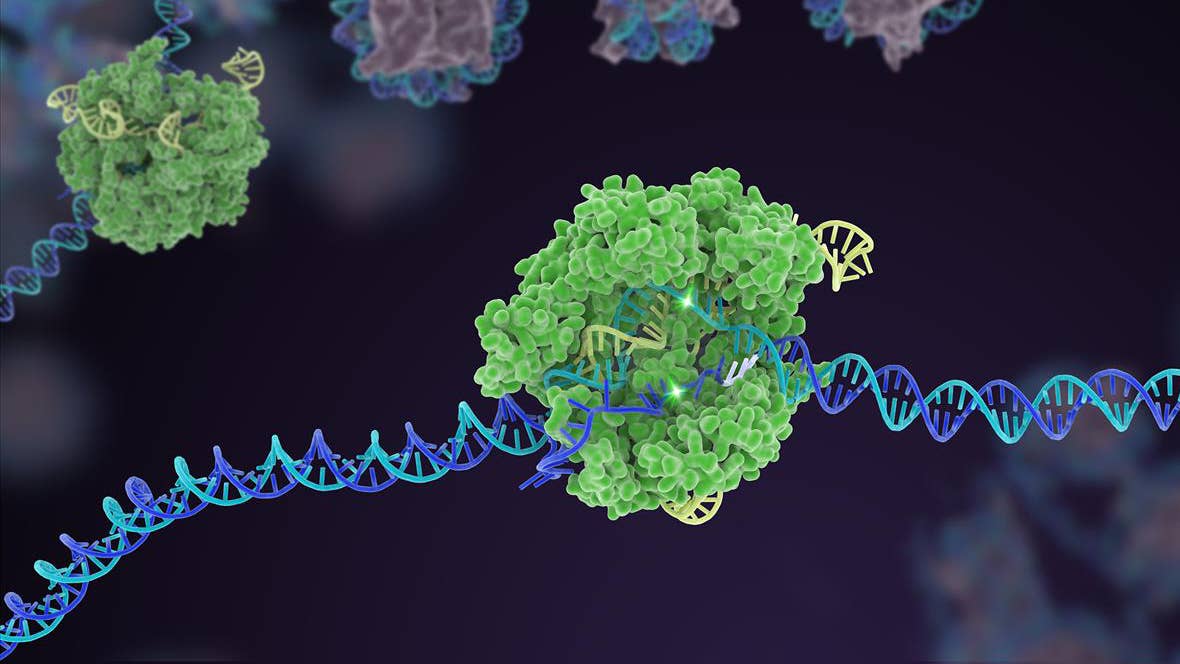Interview with Future Guru James Canton

Share

Lots of people talk about the future, but few can reliably predict trends. James Canton has enough experience with the future that he helps others by acting like a guide. His accomplishments are wide-ranging: executive at Apple as they prepared to launch Macintosh in the early 80s, founder of numerous influential think tanks including the Institute for Global Futures, advisor to the National Science Foundation, etc. He advises Global Fortune 1000 companies and governments, he was an adviser on the new SciFi action movie Surrogates staring Bruce Willis. He's written books about the future (including The Extreme Future and Technofutures), was named as 'the Digital Guru' by CNN', and serves as the co-chair of Singularity University's Futures and Forecasting Track. In short, James Canton spends most of his time planning ahead and helping others do the same. I was lucky enough to grab him for a phone interview and asked him to share some of what he envisioned as our collective possible futures.
"Most of the bleeding edge innovations that somehow we take for granted today, and those that have not yet fully emerged...I get to see a lot of those first...and often times work on them." -- James Canton, 2009
Dr. Canton has so many stories about his experiences with future tech and trend spotting that almost anything can get him going. He and I talked over a free conference call system (FreeConferenceCall.com). The idea of free conference calling, when it emerged years ago, was so novel that Canton remembers people worrying it was some sort of future tech hijacked from time travelers. Crazy what some will assume, but Canton also worked with the first voice over IP platform creators starting fifteen years ago. Their idea was so ahead of its time that the group just recently got their patent last year. Now VOIP accounts for as much as 25% of all telephony traffic today. Some real trends inspire nutty beliefs, some unbelievable trends take years to make reality. Canton has an eye for spotting both.
Unpopular Beliefs: Climate and Energy
Just look around the Institute for Global Futures website and you'll see that Canton's group paints a pretty rosy future for most fields. There's just so much developing technology and enthusiasm that it's easy to expect great things in the next few decades. Yet, dig on IGF a little deeper and you'll notice that the optimistic outlook is missing from two areas: climate and energy.
"I do not believe that we will be able to mitigate or manage all of the potential negative impacts due to climate change." --- James Canton, 2009
Canton is the first to admit his beliefs may be unpopular, but he just doesn't think we can fix all of the climate problems of our world. He estimates that at least 50% of all climate change will not be able to be addressed by even the most drastic alterations of life style. Why? Partly because damage has already been done, partly because there simply isn't the level of necessary global interest, yet.
Instead of finding a magic fix for shifts in global weather, Canton believes we're going to find ways of adapting. The same way our ancestors adapted to the Ice Age, or how civilizations adapted to the Little Ice Age, we'll adapt to new trends in climate. That means we need to do some planning now. For Canton, that means worrying about feeding, housing, and providing water for 8 billion people by 2050.
In energy, the future may all be about doing what we can with a limited tool kit. Canton doesn't know exactly what the post-oil civilization will look like, but he guesses that the sort of change that revolutionized personal computing could happen again for energy. He muses that some kid in a garage in Berkeley, or Mumbai, or Shanghai is probably coming up with a game-changing technology right now. Until it takes off, we'll have to shoe string together alternative energy sources to see us through.
Again, that doesn't mean that the future is out of our control. Billions spent today could affect the world of tomorrow. We may need to research how to build convergent technologies to build a new kind of energy platform (combustion and nanotech, synthetic biology and solar, etc.)
Three Possible Futures
Depending on how humans adapt to the problems of climate and energy, and depending on how we pursue new technology, we could see a variety of new worlds emerging. We're talking extreme futures now, maybe several generations ahead of where we're at today. Canton's visions for what that time could be like falls into three broad scenarios.
First, there's the ultimate utopia. There's a high quality of life planet wide. Nano-foundries and molecular manufacturing allows everyone to have access to resources and to live extended lives thanks to personalized medicine. AI control of supply and demand helps distribute resources between buildings, cities, and nations in the most efficient manner possible.
Efficiency and sustainability are the key to Canton's vision of Utopia. He freely admits that we aren't on the path to that paradise right now. "It certainly is possible, but it's gonna take...a massive shift in issues." The world isn't focused on efficiency and sustainability right now, but if it was, it could find a way to make access to resources a solvable problem. How likely is this utopia future? Canton thinks "we are going to get there out of adapting." Change the way we think about our world, and we can change world.
Our second scenario is much like today, just extended. There will be haves and have-nots but with much larger gaps between the two groups. Pockets of progress will dot the globe, likely in about 150 or so 'mega-cities'. These sprawling urban landscapes of 15-25+ million people will be centers for talent and resources. We may see a billion millionaires populate these locations. Many of the benefits from the utopia scenario will be available to the 'haves' in the mega-cities.
Be Part of the Future
Sign up to receive top stories about groundbreaking technologies and visionary thinkers from SingularityHub.


"In 2035 I forecast, due to technological innovations, that...poverty and terrorism and war...will be reduced by 80%." ---James Canton, 2009
The rest of us won't have it so bad, though. Dr. Canton firmly believes that democratized technology will help us partially heal most of the major problems we have today. Poverty and war and terrorism (the three are linked in his mind) will be reduced by up to 80% by 2035. Individuals the world over will experience quality of life three to five times better than that of today.
Why? Because we'll have been working on major problems for more than a generation. 25+ years of addressing sustainability, poverty, and other 'grand challenges'. We may face a 'sustainable singularity' - a time when the pursuit of solving the world's problems has reached a point when major improvements are taken as par for the time. Even with some having more than others, the baseline could be pulled up drastically.
The final scenario is one that no one but science fiction writers would really enjoy. The 'implosion' scenario is a possibility wherein Canton sees disaster as the defining trend. Conflict zones, like the ones we have today, will have grown with the application of rogue technologies, and dwindling resources. The mega-cities from Scenario Two will become fortress cities. In a way, that's the sort of world we live in today. Some of the world feels safe, other parts experience great conflict.
"Every technology that could be used to create the Utopia...could also be used to rob people of their...rights." ---James Canton, 2009
How do we avoid the implosion of society? Canton believes that we can't just blindly pursue technology, we also have to pay attention to society. Democratic access to, and distribution of technology can uplift the two billion people currently in the cycles of war, poverty, and terrorism. If the disease is social decay, Canton's cure is massive doses of technology to improve quality of life.
Singularity University
With so much at stake, it's no wonder Canton likes his involvement with Singularity University. "It's a grand experiment in engaging, enlightening, and enabling the next generation of leaders to have a perspective about these emerging technologies, the good, the bad, and the ugly. " For those of you new to SU, its students take summer long classes that expose them to future technologies and ideas. Everything from zero gravity to longevity.
"The first year [of Singularity University] is a success because we got it done. There's never been a university formed in such a short period of time with such outrageous revolutionary goals, that actually got done." --- James Canton, 2009
Next year, there will be even more technologies and constant improvement of the curriculum. Executive programs will start in the fall, winter, and spring that are shorter 9 day long versions of the summer session. CEO programs of just 3 days will also be available. Canton hopes these programs will help shape the way leaders think about the future and help them "to be a better planetary citizen."
"The far future is a place where many innovations that are just beginning to emerge today...[will] make a better world [tomorow]." --- James Canton, 2009
Related Articles

Souped-Up CRISPR Gene Editor Replicates and Spreads Like a Virus

This Brain Pattern Could Signal the Moment Consciousness Slips Away

This Week’s Awesome Tech Stories From Around the Web (Through February 14)
What we’re reading